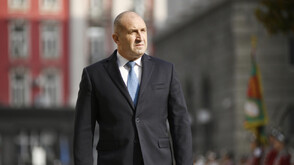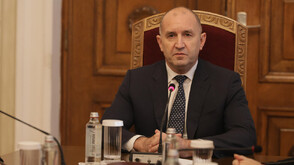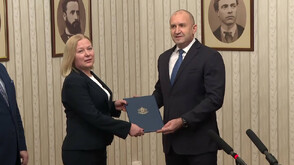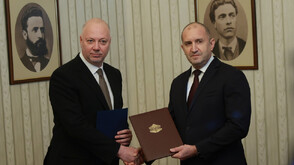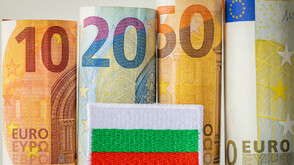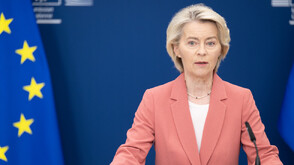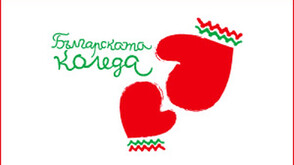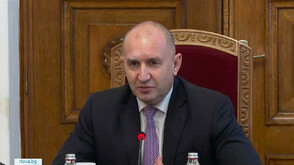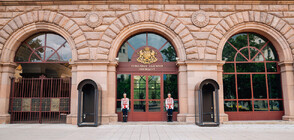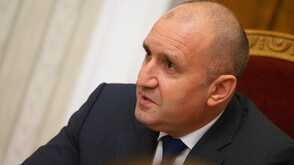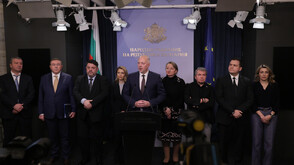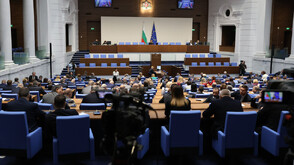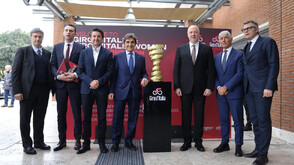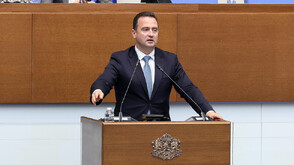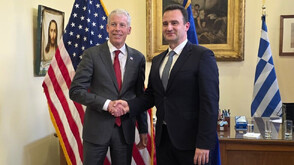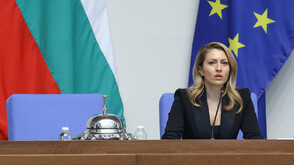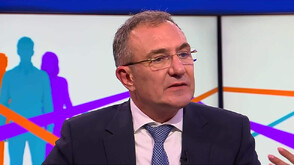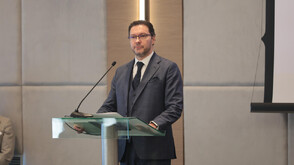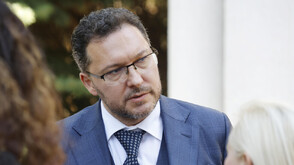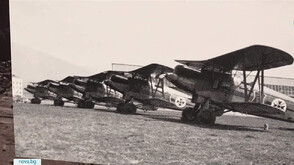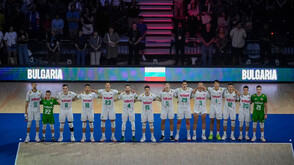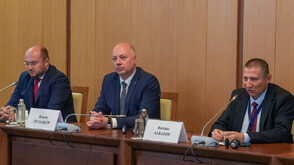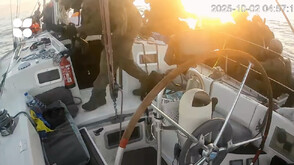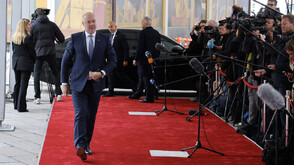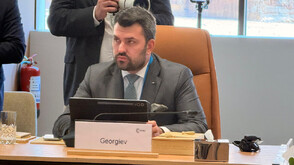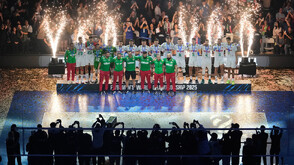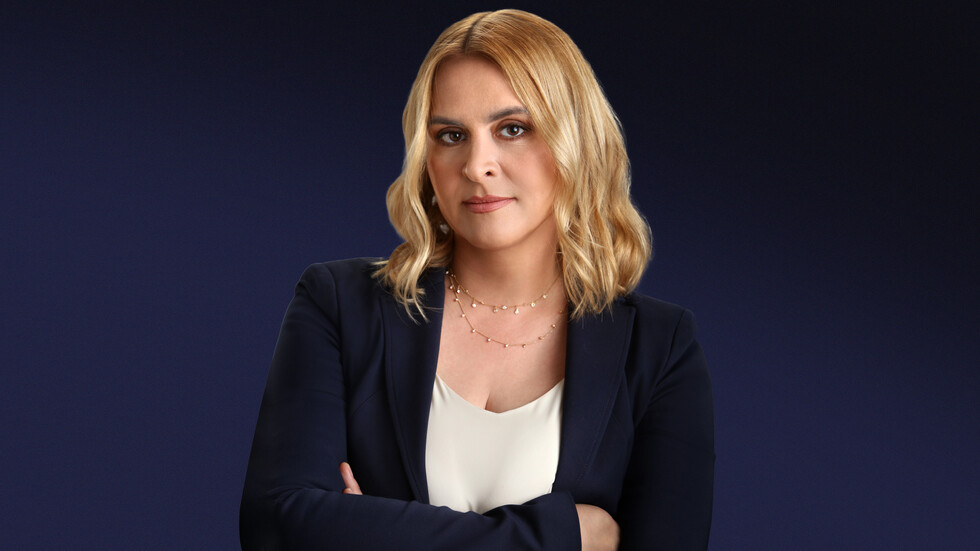
The CEO of the media and telecom group, owner of Vivacom and Nova TV, speaks to Capital
Victoriya Boklag is CEO of United Group, the leading multi-play telecoms and media provider in Southeast Europe. Ms. Boklag joined the company shortly after its inception having started her career in the private equity industry. She has held a number of strategic leadership positions within the Group, including CEO of SBB and VP of Marketing and Media. She was appointed CEO in 2018. She has played a key role in the evolution of the company from a local provider to the largest integrated telecommunications and media business in the region.
Ms. Boklag was educated in both the United States and her native Ukraine. She holds a degree in Business Administration and Management. She is also on the board of the SBB Foundation.
Who and when got in touch with United Group relating to the Bulsatcom network loan? Doesn’t this make you affiliated with the operator?
UG granted a loan to Mr. Spas Roussev to acquire Bulsatcom. Bulsatcom subsequently agreed to sell part of its fixed network to Vivacom subject to a lease-back arrangement.
These transactions do not affect competition in the country’s pay TV and fixed broadband markets. Bulsatcom and Vivacom continue to compete fiercely for subscribers. These two companies do not exercise any influence on each other’s commercial strategies.
In the telecom industry it is common for operators to use each other’s infrastructure. For example, A1 frequently uses Vivacom’s ducts to roll out its fixed network. Mobile network operators often use each other’s towers. Regulators encourage infrastructure sharing.
The Bulgarian Commission for Protection of Competition (CPC) is reviewing our arrangements. We fully cooperate and do not expect the Commission to identify any concerns.
What is the total number of TV and internet providers in Bulgaria that you have researched for the past few years, which ones have you bought and how many new customers have they added to your client base? What is the total amount you have allocated for investments and acquisitions in the sector since you bought Vivacom?
Since we acquired Vivacom in 2020, we have completed 2 acquisitions of small operators – Net 1 in Sofia and N3 in Plovdiv. The cumulative market share of these operators in pay TV and broadband was less than 4%. There are still more than 200 small players in Bulgaria, but scale has proven to be of crucial importance in the telecom sector in order for the operators to be able to implement new products and technologies, so further consolidation of the market should be expected.
At what stage is the Networx deal (which also includes Online Direct)?
The CPC initially approved the acquisition of Networx by Vivacom. However, following an appeal by a competitor, courts annulled this approval and instructed the CPC to re-open its review. This was surprising because court of appeals contradicted its own findings made in relation to previous acquisitions by Vivacom. The case is now back with the CPC and the review is extremely slow. We are fully cooperating with the CPC and remain confident that the CPC will once again approve this acquisition.
What was the number of your TV, internet, and voice users at the end of 2022? What is the amount of the consolidated revenues from this business here? Together with the Nova TV business, what is the amount of the consolidated revenues and net profit last year?
Our revenues in Bulgaria grew in 2022 by almost 9% y-o-y, outperforming growth rates of the markets, where we operate. Vivacom become the market leader in the pay tv and internet markets. Nova bundle of channels is the undisputed TV viewership leader. Nova TV is the leading source for news for Bulgarians.
What is your plan for Bulgaria in the different segments for this year and the coming three years?
We have invested in Bulgaria almost EUR 1.8 billion for the acquisitions of Vivacom and Nova as well as for various strategic initiatives to develop both telecom and media sectors. We plan to make additional investments of EUR 600 million in the next three years to further develop and strengthen our Bulgarian business.
We have built the largest 5G network in Bulgaria giving access to high-speed connectivity to nearly 80% of the Bulgarian population. We also started to rollout of 10GIGA optical network at a time when people needed it the most – during the COVID-19 pandemic. Currently, our 10GIGA optical network now reaches nearly half a million households while the total number of homes that have access to next generation connectivity is more than 1,4 mln, and the buildout continues. Two years ago we launched EON, our proprietary TV platform, marking the beginning of a new era in the way television is watched in Bulgaria. Six months ago, we also offered to the Bulgarian users brand new mobile Unlimited plans with unlimited calls, megabytes and text for all tariffs and price points. This is happening for the first time ever.
We also invested in Nova Broadcasting Group’s brand new building, the first independent complex for new generation electronic media. It was built specifically for tv and radio production activities. On an area of nearly 17,000 sq.m., the complex houses ultra-modern TV and radio studios, spacious equipment rooms, editing rooms and a brand new newsroom. The technological functionalities of the new building give much greater freedom, dynamics, and exceptionally high-quality content.
We will continue to invest in the coverage and capacity of Bulgaria’s mobile and optical networks and in high-quality products based on the latest technologies such as the 5G high-speed home internet that we launched only a week ago. We are also investing in high-quality, versatile content focused on video and unlimited use, following the global trend in customer demand. We will continue to follow global trends and develop a convergence between our telecom and media businesses. We will also keep our digitalization strategy strong and running.
Do you have any plans for more acquisitions in the region or you are done with your expansion for the time being?
A company with track record like ours, with over 150 successful acquisitions in various countries across the region in just 20 years, is always open to new opportunities to expand its business.
In the past three years alone, United Group has transformed completely from a regional business into the leading player in SE Europe. We acquired Vivacom and Nova in Bulgaria, Tele2 and Optima Telekom in Croatia, Nova and Wind in Greece, as well as 20 more small and medium-sized companies in the region. We continue to look for further opportunities to grow our business.
After taking over the acquired companies, United Group together with the local management carefully crafts the new strategic and investment plans for each target and initiates their execution. In Bulgaria, for example, in less than three years, we have invested almost EUR 1,8 billion in acquisitions and new investment programs, which makes us one of the largest investors in the country. In Greece, we have recently started with the implementation of a EUR 2 billion large-scale project over the next 5 years, aimed at improving Greece’s telecommunication infrastructure and driving the country’s digital transformation.
What are your plans when it comes to the development of the business?
Despite the rapid pace of our expansion to new markets in the past few years, we remain very focused on the implementation of the new strategies in Bulgaria, Croatia and Greece. Among other initiatives, we are building 10G networks in these countries, as well as improving the quality and coverage of the mobile networks.
We continue to innovate and create new products at United Cloud, UG’s own innovation center. It is one of the largest centers in the region and is currently establishing a branch in Bulgaria. EON is one of the products developed by United Cloud and successfully launched across all markets where UG operates. We are also putting major efforts in IT to improve and optimize customer experience at every touchpoint with the use of digital tools and new technologies.
With content being one of the cornerstones of our strategy, we continue to put strong focus on local productions and new forms of content appealing to younger generations. We also intent to keep on experimenting with new ways of monetizing locally produced content.
Our ambition is to be a market leader in sustainability in the telecommunications and media industry for generations to come. Both sectors have impact on climate change, therefore, we have set a goal to make the Group carbon-neutral by 2040. Next month we will announce a large-scale sustainability initiative.
How do you plan to reduce your debt burden – through cost-cutting initiatives, sale of assets or sale of a network?
For the past three years, our business has grown threefold. We have increased our scale and profitability, mainly by entering new markets and launching new products. As a result of organic growth and M&A activities United Group’s revenues soared from 742 million euros in 2019 to over 2.5 billion euros in 2022. Our operating profit climbed from 316 million euros in 2019 to more than 1 billion euros in 2022.
United Group’s M&A actives have been primarily financed through the bond markets, while investment programs have been funded by internal cash flows and working capital facilities. We are very mindful of maintaining debt within the market standards and permitted limits while the newly acquired entities deliver strong results across all geographies.
In absence of new acquisitions, and therefore no additional debt, we will naturally reduce the debt burden through profitability and cash flow growth. In addition to deleveraging through growth and based on the model of big telecom operators around the world, we have launched a process to spin off and monetize our mobile towers. We are one of the few European telecom companies that still control almost 100% of their mobile and fixed networks.
By monetizing the towers, we are planning to reduce United Group’s debt and minimize the short-term and mid-term risks of refinancing. The ownership over active equipment, as well as design and quality of the service, will remain in our ownership and under our full control.
How would you comment the information that your credit rating has been lowered?
Our rating has not been downgraded. In January, Moody’s affirmed our B2 corporate credit rating and only changed the perspective from stable to negative.
While the change in outlook was driven mainly by the current economic environment, the rating affirmation considers “the company's solid operating momentum and growth opportunities, improved scale and scope of operations over the past few years, and its strategic shift to focus on cash flow generation, liquidity and deleveraging” as stated in Moody’s release.
Our earliest debt maturity is in more than a year, in June 2024. Under normal market conditions, the maturities due in 2024 and 2025 could easily be refinanced on the bond market. Considering the current market situation amid the war in Ukraine, we have taken a more conservative approach. Therefore, our decision to launch a process to spin off and monetize our mobile towers following the example of other big telecom companies in Europe and globally turned out to be a good strategic decision.
How far has your plans to go public reach?
For the time being, this is not on our agenda.
What is the current shareholding structure of United Group?
United Group is majority owned by BC Partners, the leading alternative investment manager focused on private equity, credit, and real estate, with deep networks across Europe and North America. Currently BC Partners has over 124 investments across 18 countries in 4 sectors with total enterprise value of over 161 billion euros. The Chairman and Founder of United Group, Dragan Solak, together with the management, owns a significant minority stake. The Group is also backed by EBRD who has been a minority shareholder since 2004.
How do you utilize the synergy between a media company and a telecom?
The main synergies are still to be seen, in my opinion. Media and pay TV are among the most transformative industries at the moment. Besides traditional local and global media companies, the fight for “eyeballs” is now joint by all the social networks and D2C OTT players like Netflix, Disney, etc. Both subscription and advertising models are being challenged and reinvented. In this environment, having the strength of the local content production capabilities, relationships with the local advertisers and powerful subscription business is key for the future success of both local media and telco operations. Moreover, telco and media companies together put up a stronger fight against the pirates and illegal distribution of content, which harms everyone in the system – creators, artists, producers, and content providers.
Currently, UG has managed to establish an exceptionally serious media concentration – probably the biggest in Bulgaria’s history. At the time of Nova TV’s acquisition, there was an idea to set up an international board to guarantee journalistic freedom. Why didn’t this happen?
United Media, has an independent editorial board, which is based in Luxembourg. The board was already in place at the time of the acquisition of Nova Broadcasting Group in Bulgaria. It is responsible for our compliance with the highest media standards and is tasked with verifying the unbiased and ethical work of journalists. Freedom of speech and independence are values that our company has upheld since its establishment.
All members of the board are well-respected representatives of emblematic media such as BBC and RTL. They are fully independent and are not employed in any of our media assets.
A couple of years ago, Peter Horrocks and Adrian Wells joined as members. Peter is the former director of BBC World Service and spent a total of 33 years of his professional career at the BBC. Adrian Wells is the managing director at ENEX - an association of 55 broadcasters, which is part of RTL Media Group. In addition, he has 27 years of media experience in BBC News and Sky News.
The board reviews the editorial process, when necessary, and takes care of public complaints procedures. I am proud that since the acquisition of Nova there has been no occasion or reason for this board to interfere.
Victoriya Boklag pointed out to nova.bg that United Group has been developing exceptionally successfully in Bulgaria. “The company is competing very strongly and actively, but always strictly respects the laws and regulations,” Boklag told nova.bg, adding that the loan granted to Bulsatcom does not represent concentration. “We have duly informed the Competition Protection Commission before finalizing any deal with Bulsatcom, as the law requires,” said Boklag.
Редактор: Маргарита СтоянчеваПоследвайте ни

